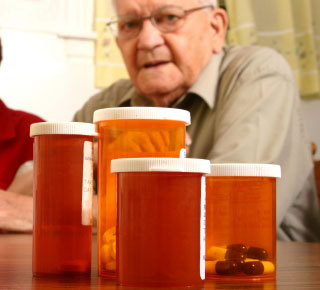Silent Drug Addiction in the Elderly Concerning to The Recovery Place
April 14, 2011 (PRLEAP.COM) Health News
Baby Boomers are aging in massive numbers. But behind closed doors the silent specter of drug addiction is also rising. This increase in substance abuse among the elderly, particularly prescription drug abuse, negatively impacts health, finances, and dims the idea of golden years. The Recovery Place takes a proactive stance to educate and support these seniors and soon-to-be-seniors quietly battling a "shhh! We don't talk about these things!" drug addiction. Baby boomers in their 50s and 60s grew up in a generation where recreational drug use and experimentation was relatively common. Ironically, however, they also grew up with a social mentality that views needing rehab for a substance abuse problem is kept private and within the family. Keep that dirty laundry in the bag, not on the line.
While often this youthful drug and alcohol experimentation didn't lead to addiction, as people enter senior status many factors lead to unexpected and destructive addictions.
According to the National Institute on Drug Abuse (NIDA), part of the National Institutes of Health, it is projected that by the year 2020 the number of senior citizens with alcohol and drug problems will soar by 150 percent.
The Recovery Place alcohol and drug rehab center in Fort Lauderdale, Florida, has watched this rising trend of prescription drug abuse with concern, and is committed not only to treatment, but to preventative education. According to The Recovery Place, a first important step is national awareness regarding what factors are playing a role in these rising numbers of elderly citizens dependent on or addicted to drugs and alcohol.
A major culprit? Aging itself!
As seniors live longer and have stayed more active, the general aches and pains, or joints that give out or need repair, may require pain medication. Without close management by physicians, this use of prescription pain killers, such as the frequently prescribed Vicodin, can eventually cause a physical dependence on this narcotic.
Prescription painkillers are readily available, and those who find themselves sadly dependent can move from doctor to doctor, emergency room to urgent care, in order to obtain a prescription. In 2009 alone, doctors wrote 128 million prescriptions for hydrocodone-acetaminophen combination products such as Vicodin.
According to The Recovery Place, just because someone is dependent or addicted to a drug such as Vicodin, doesn't negate the fact that they may experience some real pain. Busy doctors need to take care to refer their patient's to pain management specialists in order to manage chronic pain.
Another factor is the loneliness that may occur when physical or social circumstances affect how the elderly can interact with society. This can lead to inappropriate use of drugs or alcohol in order to dull the loneliness, anxiety or depression.
The Recovery Place is not only a strong advocate of preventive education regarding elderly drug abuse, but a proponent of watchful monitoring by family and friends in order to identify signs of symptoms of abuse in their loved ones. Is their aging father or mother, even a sibling, going to admit to having a problem? The Stoic Boomer? Likely not.
Shame regarding an addiction often keeps the elderly from getting help, when they most need it. So the numbers continue to rise.
About The Recovery Place:
More than just a physical place where the hard work of recovery from a drug or alcohol addiction takes place, The Recovery Place is an education source for the national community, including the elderly, to help prevent drug and alcohol problems before they start.
